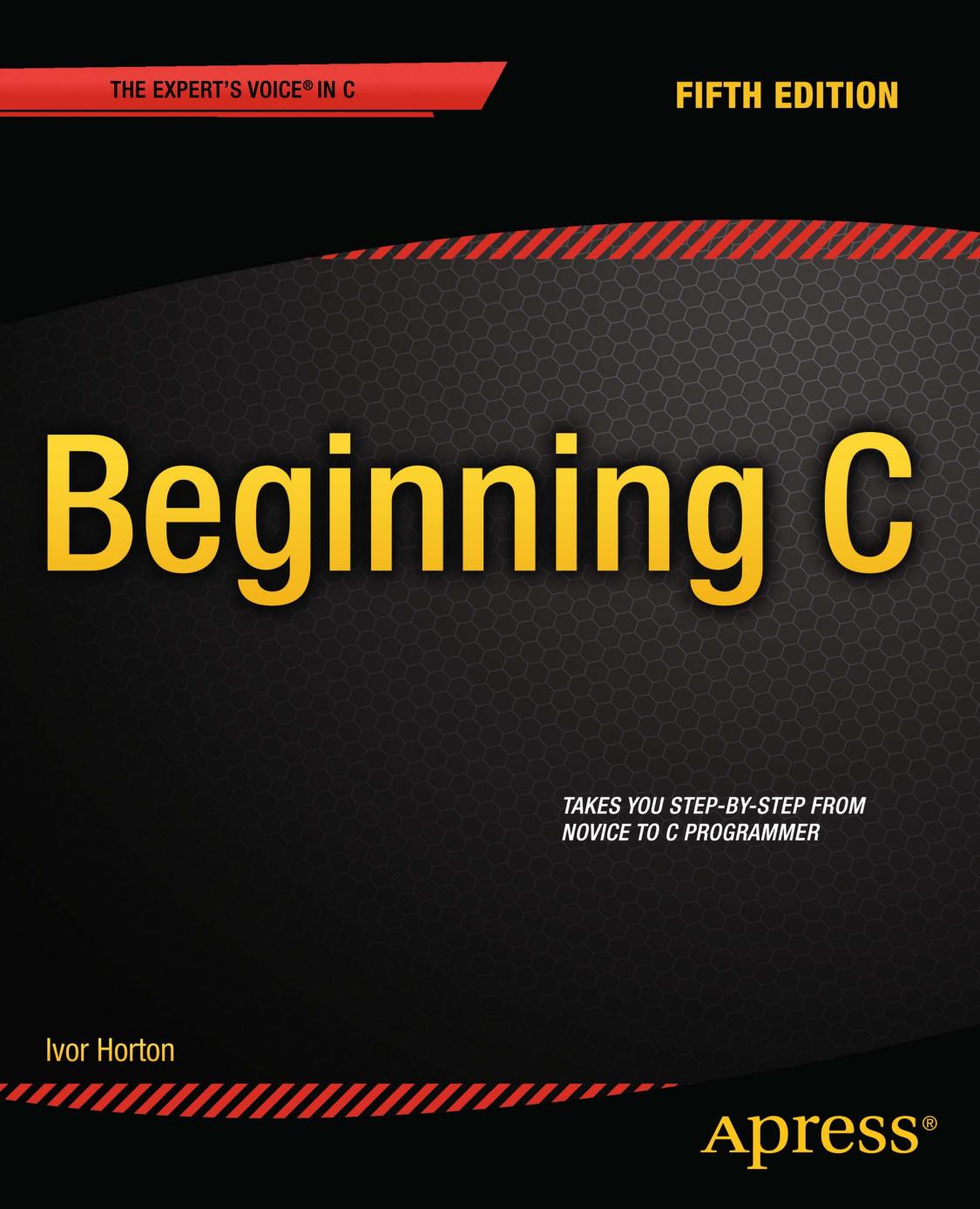Beginning C by Ivor Horton

Author:Ivor Horton
Language: eng
Format: epub, pdf
ISBN: 9781430248811
Publisher: Apress
int main(void)
{
int count1 = 1; // Declared in outer block
do
{
int count2 = 0; // Declared in inner block
++count2;
printf("count1 = %d count2 = %d\n", count1, count2);
} while( ++count1 <= 5);
// count2 no longer exists
printf("count1 = %d\n", count1);
return 0;
}
You will get the following output from this program:
count1 = 1 count2 = 1
count1 = 2 count2 = 1
count1 = 3 count2 = 1
count1 = 4 count2 = 1
count1 = 5 count2 = 1
count1 = 6
How It Works
The block that encloses the body of main() contains an inner block that is the do-while loop. You declare and define count2 inside the loop block:
do
{
int count2 = 0; // Declared in inner block
++count2;
printf("count1 = %d count2 = %d\n", count1, count2);
} while( ++count1 <= 5);
So count2 is re-created on every loop iteration with the initial value 0 and its value is never more than 1. During each loop iteration, count2 is created, initialized, incremented, and destroyed. It only exists from the statement that declares it down to the closing brace for the loop. The variable count1, on the other hand, exists at the main() block level. It continues to exist while it is incremented, so the last printf() produces the value 6.
If you modify the program to make the last printf() output the value of count2, it won’t compile. The error is caused because count2 no longer exists at the point where the last printf() is executed.
Download
This site does not store any files on its server. We only index and link to content provided by other sites. Please contact the content providers to delete copyright contents if any and email us, we'll remove relevant links or contents immediately.
| Coding Theory | Localization |
| Logic | Object-Oriented Design |
| Performance Optimization | Quality Control |
| Reengineering | Robohelp |
| Software Development | Software Reuse |
| Structured Design | Testing |
| Tools | UML |
The Mikado Method by Ola Ellnestam Daniel Brolund(23570)
Hello! Python by Anthony Briggs(22703)
Secrets of the JavaScript Ninja by John Resig Bear Bibeault(21524)
Kotlin in Action by Dmitry Jemerov(20567)
Dependency Injection in .NET by Mark Seemann(20489)
The Well-Grounded Java Developer by Benjamin J. Evans Martijn Verburg(20387)
OCA Java SE 8 Programmer I Certification Guide by Mala Gupta(19536)
Algorithms of the Intelligent Web by Haralambos Marmanis;Dmitry Babenko(18334)
Grails in Action by Glen Smith Peter Ledbrook(17458)
Adobe Camera Raw For Digital Photographers Only by Rob Sheppard(16976)
Test-Driven iOS Development with Swift 4 by Dominik Hauser(11241)
Becoming a Dynamics 365 Finance and Supply Chain Solution Architect by Brent Dawson(8071)
Microservices with Go by Alexander Shuiskov(7841)
Practical Design Patterns for Java Developers by Miroslav Wengner(7739)
Test Automation Engineering Handbook by Manikandan Sambamurthy(7704)
Angular Projects - Third Edition by Aristeidis Bampakos(7183)
The Art of Crafting User Stories by The Art of Crafting User Stories(6642)
NetSuite for Consultants - Second Edition by Peter Ries(6562)
Demystifying Cryptography with OpenSSL 3.0 by Alexei Khlebnikov(6326)
